Activists have challenged the patent claims of pharma giant Pfizer on a vaccine for pneumonia in the Delhi High Court. Médecins Sans Frontières or Doctors Without Borders (India) has filed a petition to overturn the patent granted earlier this year, on August 13 by the Indian Patent Office to Pfizer.
Activists have challenged the patent claims of pharma giant Pfizer on a vaccine for pneumonia in the Delhi High Court. Médecins Sans Frontières or Doctors Without Borders (India) has filed a petition to overturn the patent granted earlier this year, on August 13 by the Indian Patent Office to Pfizer.
“India has dashed hopes for improved access to an affordable PCV13 when it granted a patent to Pfizer for its PCV 13 product, marketed as Prevnar13, which will expire only in 2026,” a statement issued by MSF said.
In the petition, MSF argues that in August 2017, the Delhi Patent Office erroneously granted a patent to Pfizer by disregarding the evidence MSF produced indicating that the pharmaceutical giant’s claim to a patent was spurious. MSF argued that the mere addition of serotypes to the already established 7-valent vaccine did not involve a technical advancement – it was merely a tactic to preserve Pfizer’s monopoly for many more years. The decision also has broader implications, as it indicates a weakening of India’s strict patentability standards, which results in granting monopolies for minor and trivial improvements of existing medical products and restrict access to affordable medicines.
“A public health perspective used for scrutinizing pharmaceutical patent applications is an essential bulwark to ensure wider access to essential medicines and vaccines. Examiners in the Indian Patent Office must be aware that the decision they take to grant a patent can directly affect access to life-saving medicines and vaccines in India and across the developing world,” said Leena Menghaney, the petitioner who is representing MSF in court. “MSF is appealing to the court to annul the decision to grant the patent and the patent office to hear the matter afresh.”
“While MSF has initiated the legal process to challenge the patent, the actual revocation of an unmerited patent takes years. Looking at the urgent need for this vaccine, we really hope that the Indian Health Ministry in the meantime consider issuing a government use license, to encourage manufacturers who have been developing more affordable PCV13 vaccines to continue with phase 3 clinical trials and deliver the life-saving vaccine for the immunization program, not just in India but across the world,” said Yuanqiong Hu, Legal & Policy Advisor, MSF Access Campaign.
The pneumococcal conjugate vaccine (PCV) is currently available from only two pharmaceutical corporations - Pfizer and GlaxoSmithKline (GSK).
Until recently, in India, the vaccine was available in private market for Rs 10,000. It has now been introduced in India’s Universal Immunization Programme in Himachal Pradesh, Uttar Pradesh and Bihar with the help of international funding.
Globally, pneumonia causes more than a quarter of deaths in children under the age of five – nearly ten lakh young lives lost per year. India carries the world’s highest burden of pneumonia, accounting for nearly 20% of these global infant pneumonia deaths. The PCV13, which safeguards against 13 types of pneumococcal bacteria, also lowers the likelihood of antimicrobial resistance (AMR) by significantly reducing common childhood infections and decreasing the need for antibiotic use among infants and children. At the lowest price from Pfizer of about $10 a child, which isn’t accessible to most countries, it is now 68 times more expensive to vaccinate a child than in 2001 (for the full package of WHO-recommended vaccines).
The global stand on Pneumonia vaccine patents
1. Pfizer and GlaxoSmithKline (GSK) presently control a duopoly market for PCV that has brought in a whopping $39 billion in sales in the last 8 years. At the lowest global prices, the pneumococcal vaccine accounts for up to 45% of the total cost to vaccinate a child today.
2. About one third of countries around the world (~60 countries), predominantly low-and-middle-income countries where millions of children risk getting pneumonia, have not yet been able to introduce the PCV in their national immunization systems largely due to the exorbitant prices the two corporations charge – despite a 2007 World Health Organization (WHO) recommendation.
3. Pfizer and GSK have both been building so-called patent thickets restricting development and competition in the area of PCV. One study identified 106 applications potentially relevant to the manufacturing of pneumococcal vaccines. GSK, which markets PCV10 (Synflorix), and Pfizer (previously Wyeth), have filed the most number of patents in India, China, and Brazil, in an attempt to create barriers to the development of less-expensive versions of PCV.
4. The patent granted to Pfizer involves the method of conjugating (assembling) together serotypes of streptococcus pneumonia into a single carrier and is essential for PCV developers. The patent is a mere addition of serotypes to the already established 7-valent vaccine and does not meet the inventive step requirement; it ought to have been rejected.
5. Outside of India, this application was granted and subsequently revoked by the European Patent Office (EPO) following opposition by other major pharmaceutical companies. In the US, a recent inter partes review (IPR) and post-grant opposition or ‘post-grant review (PGR)’ has been filed on this application.
![submenu-img]() Firing at Salman Khan's house: Shooter identified as Gurugram criminal 'involved in multiple killings', probe begins
Firing at Salman Khan's house: Shooter identified as Gurugram criminal 'involved in multiple killings', probe begins![submenu-img]() Salim Khan breaks silence after firing outside Salman Khan's Mumbai house: 'They want...'
Salim Khan breaks silence after firing outside Salman Khan's Mumbai house: 'They want...'![submenu-img]() India's first TV serial had 5 crore viewers; higher TRP than Naagin, Bigg Boss combined; it's not Ramayan, Mahabharat
India's first TV serial had 5 crore viewers; higher TRP than Naagin, Bigg Boss combined; it's not Ramayan, Mahabharat![submenu-img]() Vellore Lok Sabha constituency: Check polling date, candidates list, past election results
Vellore Lok Sabha constituency: Check polling date, candidates list, past election results![submenu-img]() Meet NEET-UG topper who didn't take admission in AIIMS Delhi despite scoring AIR 1 due to...
Meet NEET-UG topper who didn't take admission in AIIMS Delhi despite scoring AIR 1 due to...![submenu-img]() DNA Verified: Is CAA an anti-Muslim law? Centre terms news report as 'misleading'
DNA Verified: Is CAA an anti-Muslim law? Centre terms news report as 'misleading'![submenu-img]() DNA Verified: Lok Sabha Elections 2024 to be held on April 19? Know truth behind viral message
DNA Verified: Lok Sabha Elections 2024 to be held on April 19? Know truth behind viral message![submenu-img]() DNA Verified: Modi govt giving students free laptops under 'One Student One Laptop' scheme? Know truth here
DNA Verified: Modi govt giving students free laptops under 'One Student One Laptop' scheme? Know truth here![submenu-img]() DNA Verified: Shah Rukh Khan denies reports of his role in release of India's naval officers from Qatar
DNA Verified: Shah Rukh Khan denies reports of his role in release of India's naval officers from Qatar![submenu-img]() DNA Verified: Is govt providing Rs 1.6 lakh benefit to girls under PM Ladli Laxmi Yojana? Know truth
DNA Verified: Is govt providing Rs 1.6 lakh benefit to girls under PM Ladli Laxmi Yojana? Know truth![submenu-img]() Remember Jibraan Khan? Shah Rukh's son in Kabhi Khushi Kabhie Gham, who worked in Brahmastra; here’s how he looks now
Remember Jibraan Khan? Shah Rukh's son in Kabhi Khushi Kabhie Gham, who worked in Brahmastra; here’s how he looks now![submenu-img]() From Bade Miyan Chote Miyan to Aavesham: Indian movies to watch in theatres this weekend
From Bade Miyan Chote Miyan to Aavesham: Indian movies to watch in theatres this weekend ![submenu-img]() Streaming This Week: Amar Singh Chamkila, Premalu, Fallout, latest OTT releases to binge-watch
Streaming This Week: Amar Singh Chamkila, Premalu, Fallout, latest OTT releases to binge-watch![submenu-img]() Remember Tanvi Hegde? Son Pari's Fruity who has worked with Shahid Kapoor, here's how gorgeous she looks now
Remember Tanvi Hegde? Son Pari's Fruity who has worked with Shahid Kapoor, here's how gorgeous she looks now![submenu-img]() Remember Kinshuk Vaidya? Shaka Laka Boom Boom star, who worked with Ajay Devgn; here’s how dashing he looks now
Remember Kinshuk Vaidya? Shaka Laka Boom Boom star, who worked with Ajay Devgn; here’s how dashing he looks now![submenu-img]() DNA Explainer: How Iranian projectiles failed to breach iron-clad Israeli air defence
DNA Explainer: How Iranian projectiles failed to breach iron-clad Israeli air defence![submenu-img]() DNA Explainer: What is India's stand amid Iran-Israel conflict?
DNA Explainer: What is India's stand amid Iran-Israel conflict?![submenu-img]() DNA Explainer: Why Iran attacked Israel with hundreds of drones, missiles
DNA Explainer: Why Iran attacked Israel with hundreds of drones, missiles![submenu-img]() What is Katchatheevu island row between India and Sri Lanka? Why it has resurfaced before Lok Sabha Elections 2024?
What is Katchatheevu island row between India and Sri Lanka? Why it has resurfaced before Lok Sabha Elections 2024?![submenu-img]() DNA Explainer: Reason behind caused sudden storm in West Bengal, Assam, Manipur
DNA Explainer: Reason behind caused sudden storm in West Bengal, Assam, Manipur![submenu-img]() Firing at Salman Khan's house: Shooter identified as Gurugram criminal 'involved in multiple killings', probe begins
Firing at Salman Khan's house: Shooter identified as Gurugram criminal 'involved in multiple killings', probe begins![submenu-img]() Salim Khan breaks silence after firing outside Salman Khan's Mumbai house: 'They want...'
Salim Khan breaks silence after firing outside Salman Khan's Mumbai house: 'They want...'![submenu-img]() India's first TV serial had 5 crore viewers; higher TRP than Naagin, Bigg Boss combined; it's not Ramayan, Mahabharat
India's first TV serial had 5 crore viewers; higher TRP than Naagin, Bigg Boss combined; it's not Ramayan, Mahabharat![submenu-img]() This film has earned Rs 1000 crore before release, beaten Animal, Pathaan, Gadar 2 already; not Kalki 2898 AD, Singham 3
This film has earned Rs 1000 crore before release, beaten Animal, Pathaan, Gadar 2 already; not Kalki 2898 AD, Singham 3![submenu-img]() This Bollywood star was intimated by co-stars, abused by director, worked as AC mechanic, later gave Rs 2000-crore hit
This Bollywood star was intimated by co-stars, abused by director, worked as AC mechanic, later gave Rs 2000-crore hit![submenu-img]() IPL 2024: Rohit Sharma's century goes in vain as CSK beat MI by 20 runs
IPL 2024: Rohit Sharma's century goes in vain as CSK beat MI by 20 runs![submenu-img]() RCB vs SRH IPL 2024 Dream11 prediction: Fantasy cricket tips for Royal Challengers Bengaluru vs Sunrisers Hyderabad
RCB vs SRH IPL 2024 Dream11 prediction: Fantasy cricket tips for Royal Challengers Bengaluru vs Sunrisers Hyderabad ![submenu-img]() IPL 2024: Phil Salt, Mitchell Starc power Kolkata Knight Riders to 8-wicket win over Lucknow Super Giants
IPL 2024: Phil Salt, Mitchell Starc power Kolkata Knight Riders to 8-wicket win over Lucknow Super Giants![submenu-img]() IPL 2024: Why are Lucknow Super Giants wearing green and maroon jersey against Kolkata Knight Riders at Eden Gardens?
IPL 2024: Why are Lucknow Super Giants wearing green and maroon jersey against Kolkata Knight Riders at Eden Gardens?![submenu-img]() IPL 2024: Shimron Hetmyer, Yashasvi Jaiswal power RR to 3 wicket win over PBKS
IPL 2024: Shimron Hetmyer, Yashasvi Jaiswal power RR to 3 wicket win over PBKS![submenu-img]() Watch viral video: Isha Ambani, Shloka Mehta, Anant Ambani spotted at Janhvi Kapoor's home
Watch viral video: Isha Ambani, Shloka Mehta, Anant Ambani spotted at Janhvi Kapoor's home![submenu-img]() This diety holds special significance for Mukesh Ambani, Nita Ambani, Isha Ambani, Akash, Anant , it is located in...
This diety holds special significance for Mukesh Ambani, Nita Ambani, Isha Ambani, Akash, Anant , it is located in...![submenu-img]() Swiggy delivery partner steals Nike shoes kept outside flat, netizens react, watch viral video
Swiggy delivery partner steals Nike shoes kept outside flat, netizens react, watch viral video![submenu-img]() iPhone maker Apple warns users in India, other countries of this threat, know alert here
iPhone maker Apple warns users in India, other countries of this threat, know alert here![submenu-img]() Old Digi Yatra app will not work at airports, know how to download new app
Old Digi Yatra app will not work at airports, know how to download new app
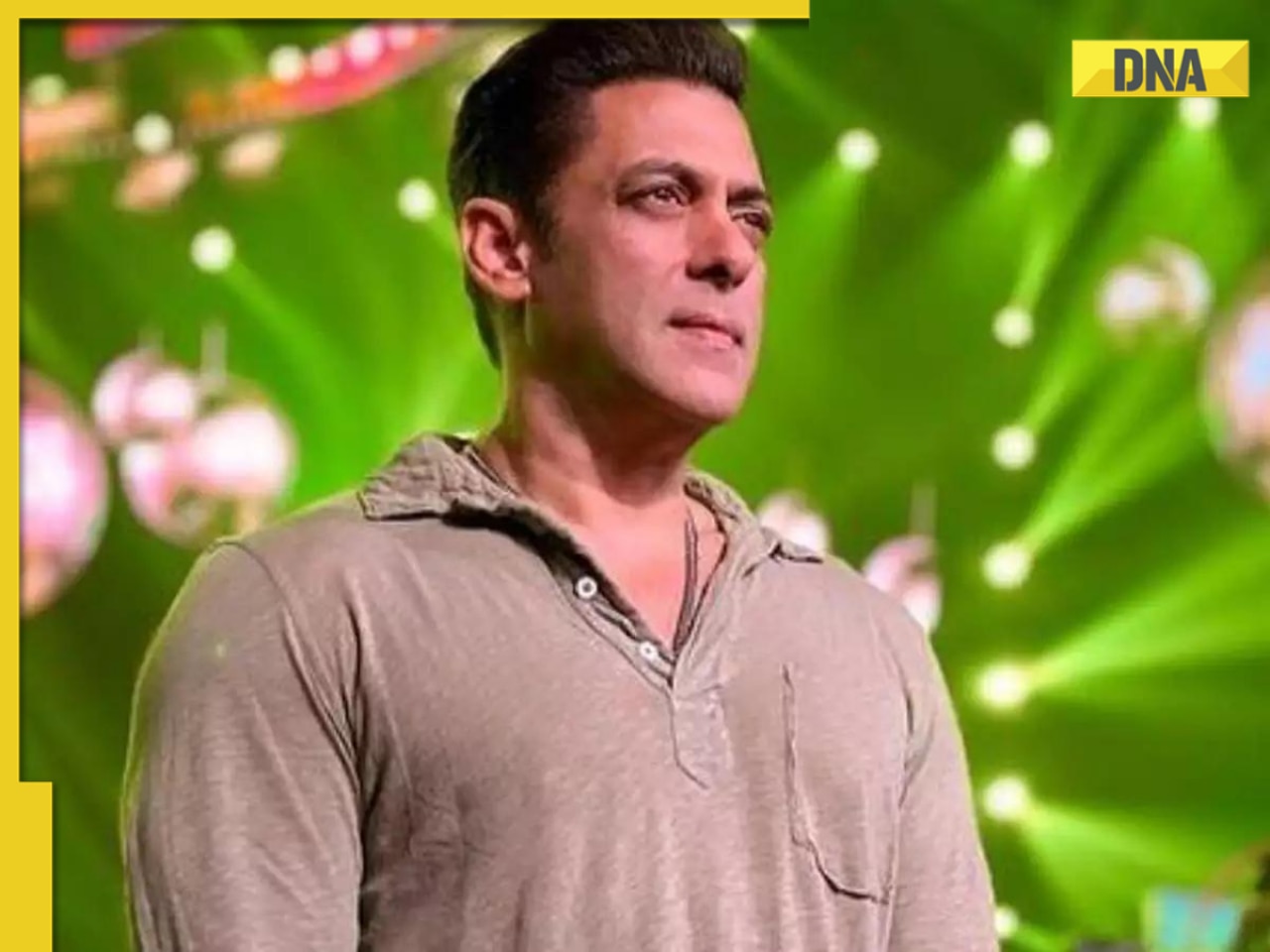
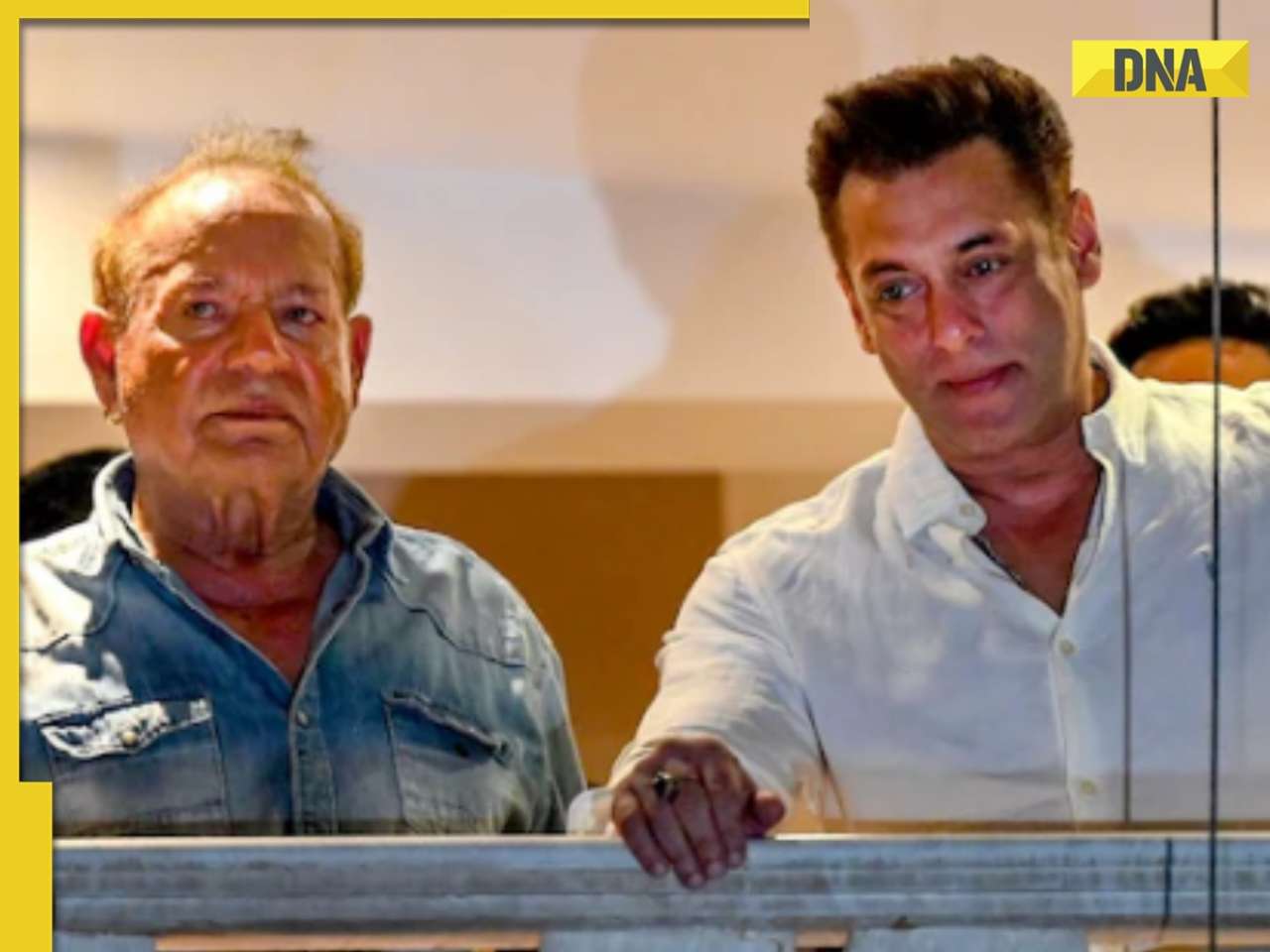
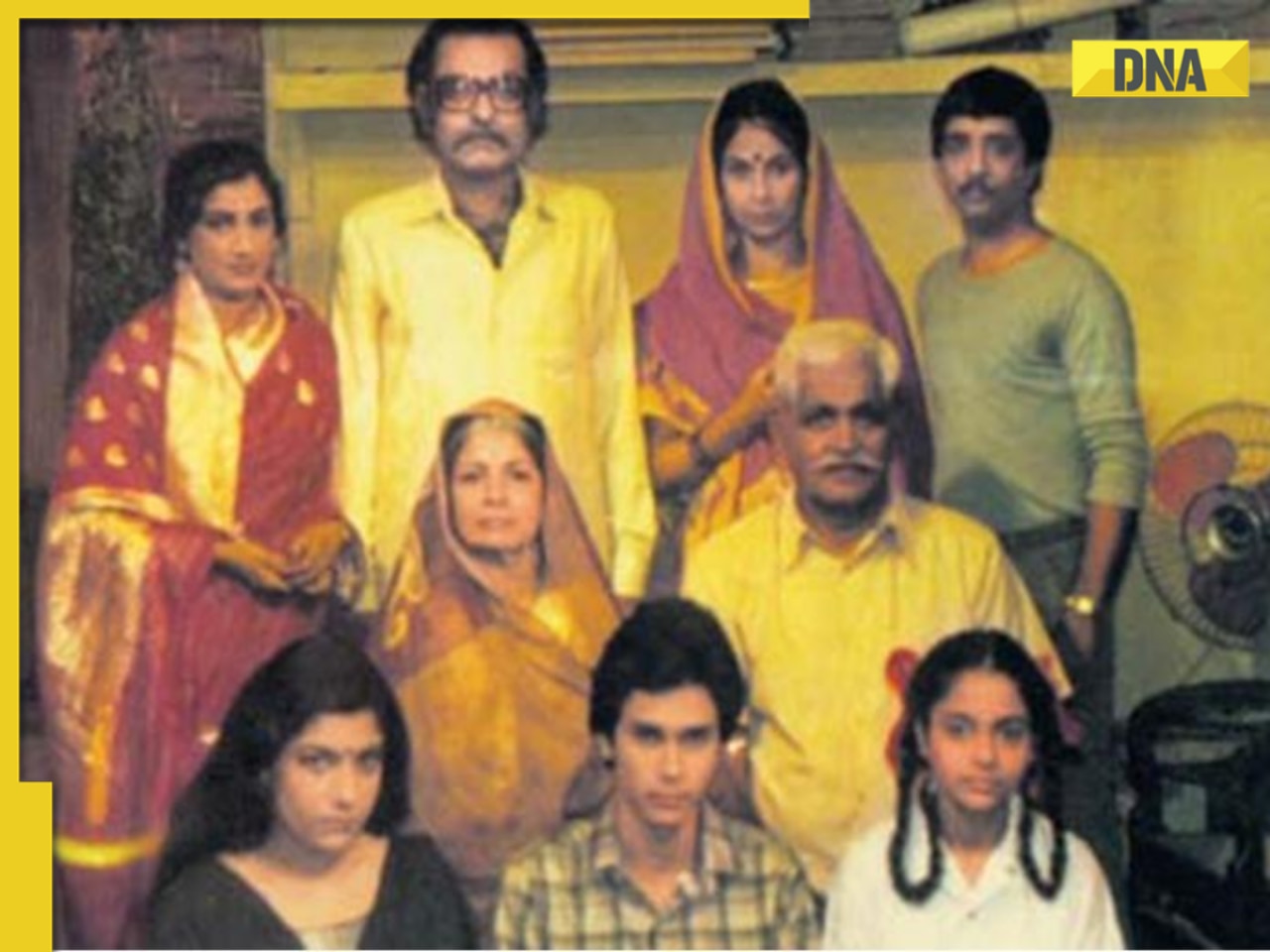
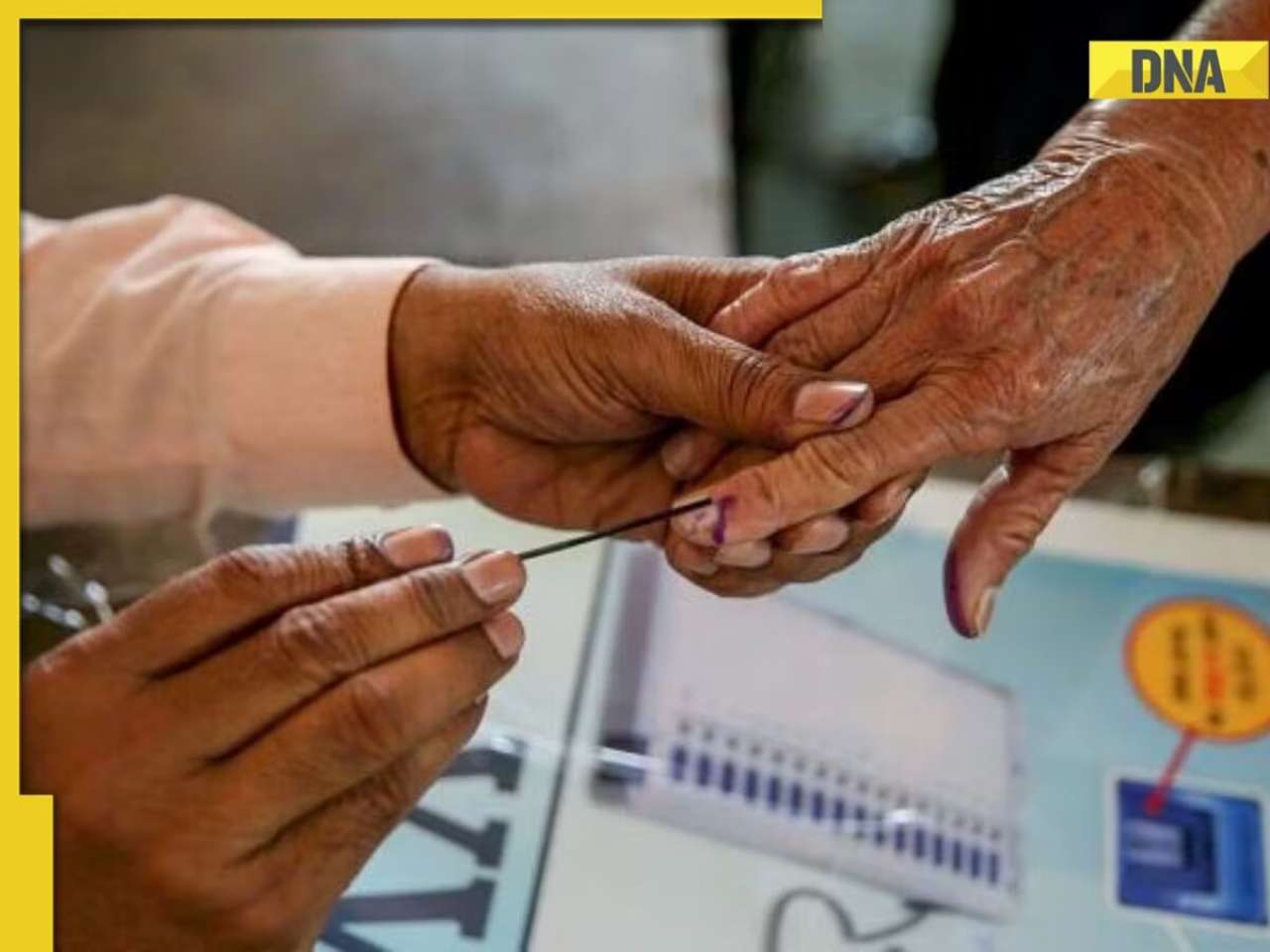
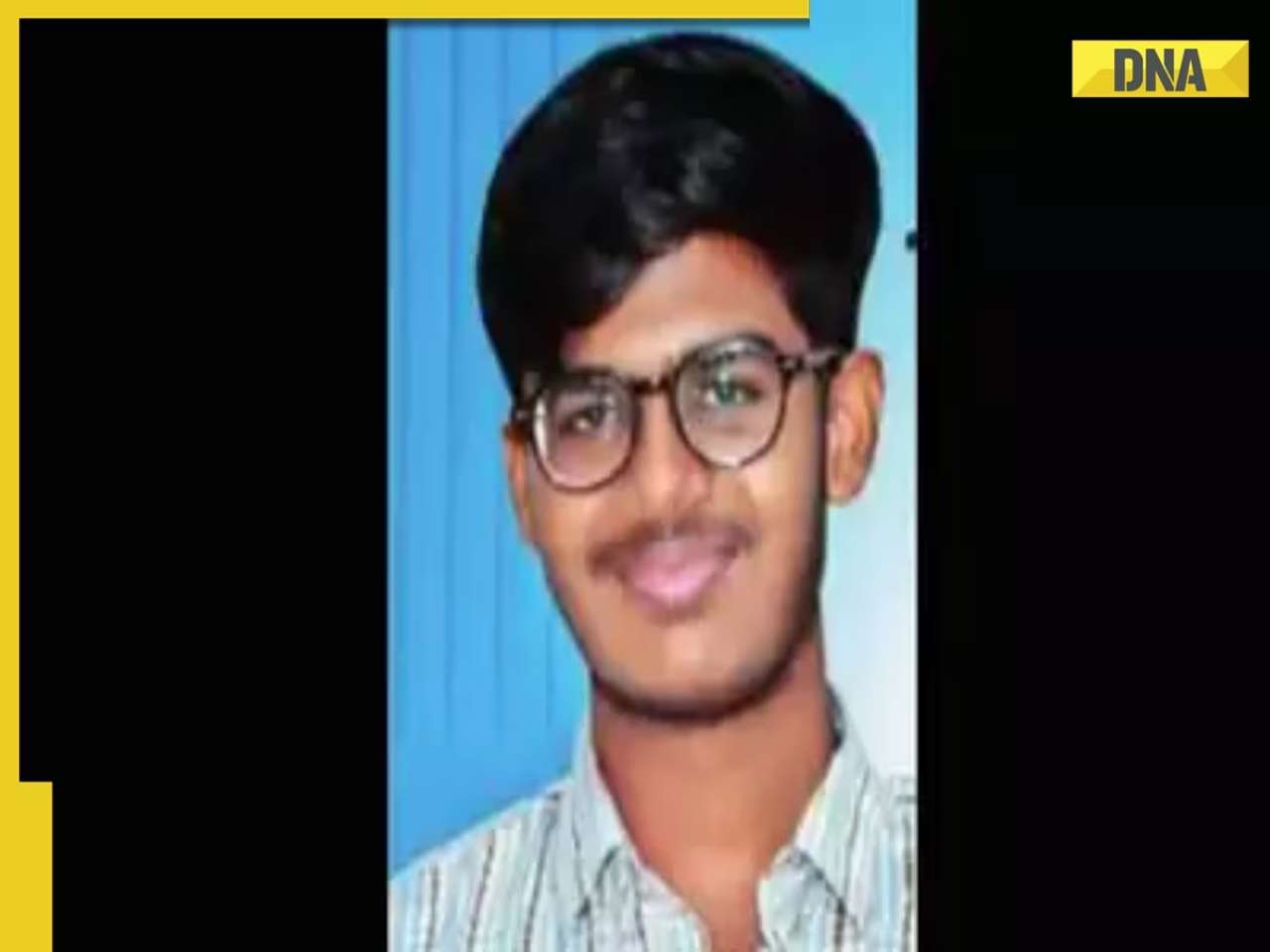



















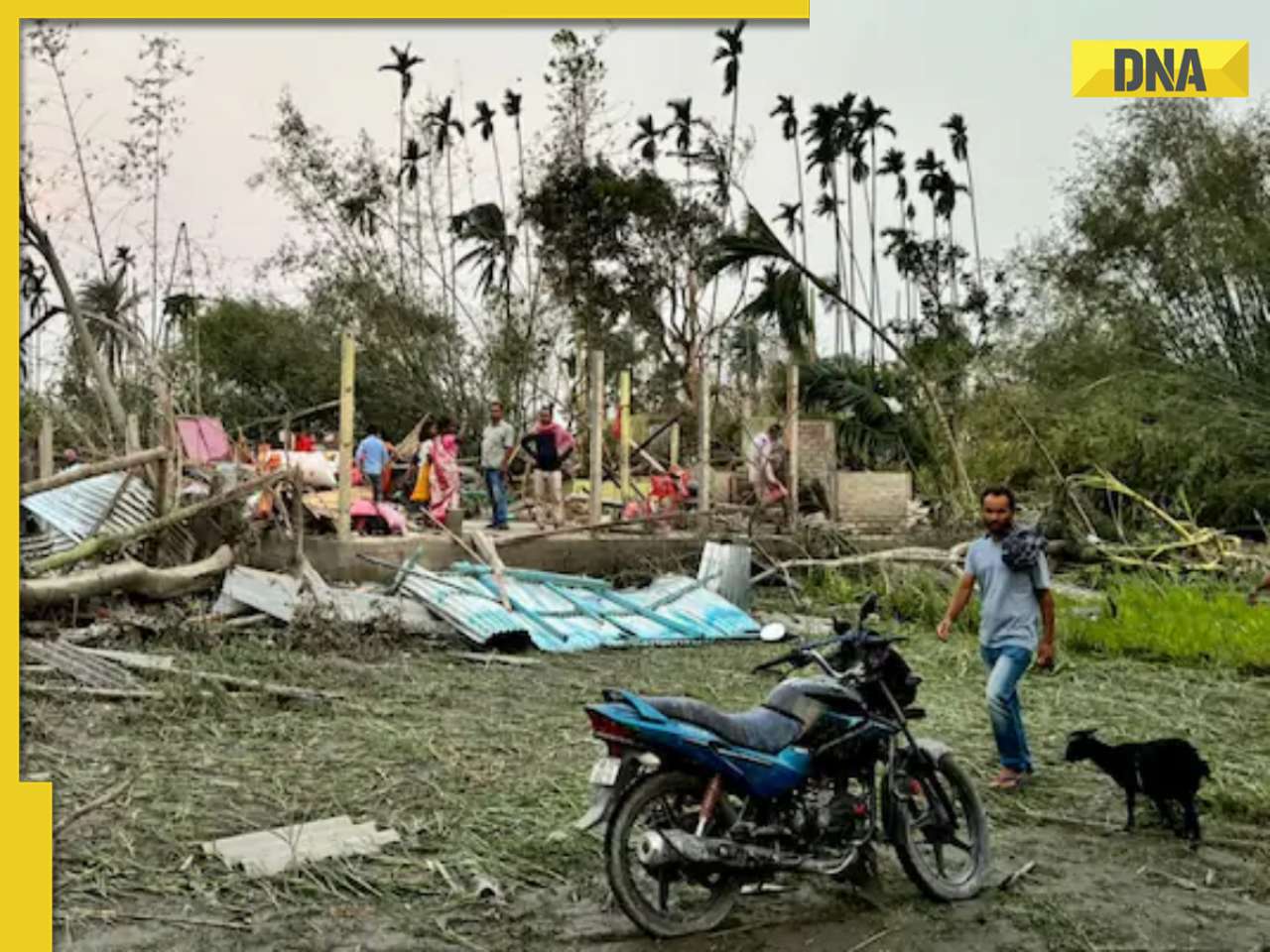
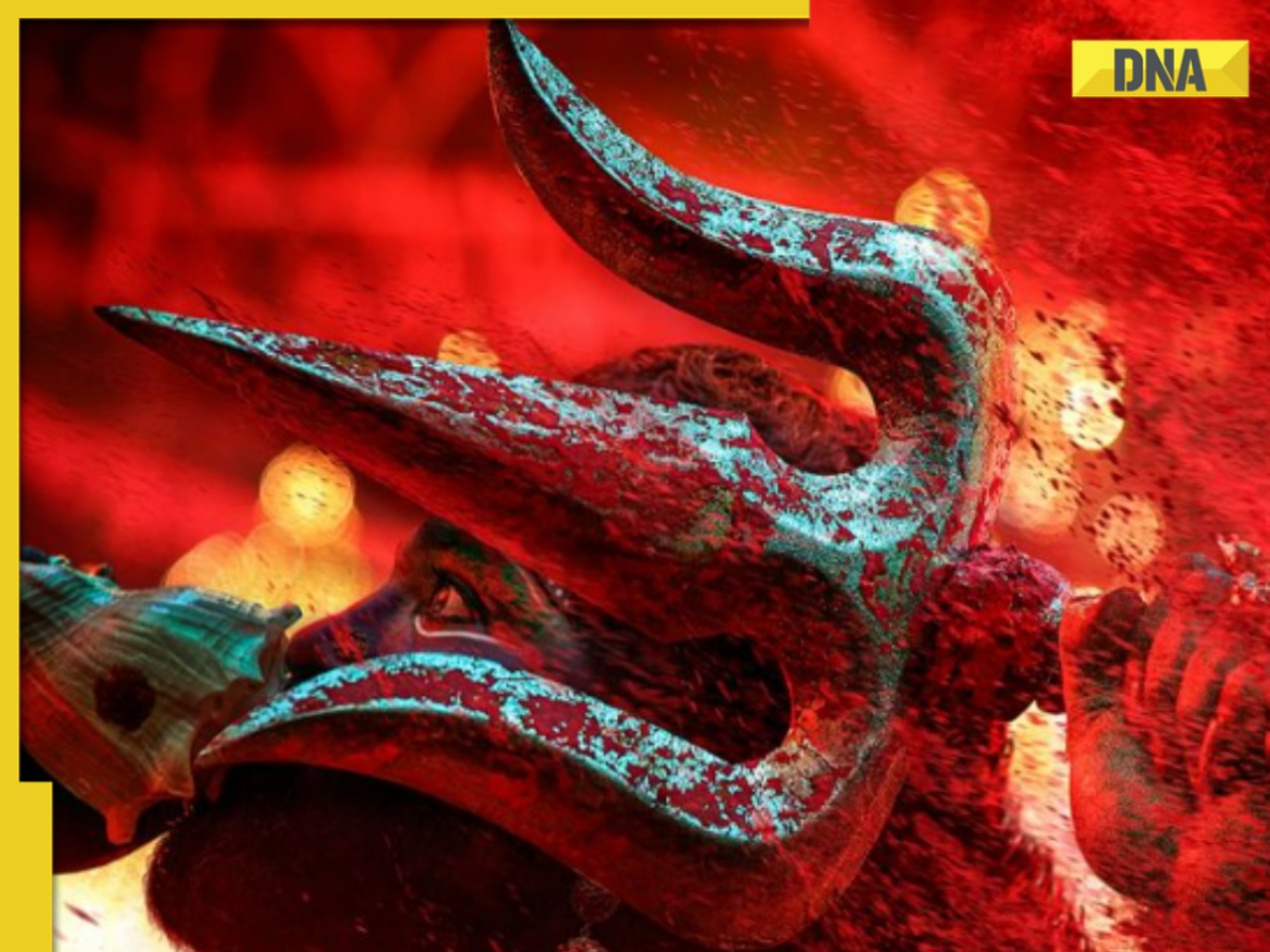
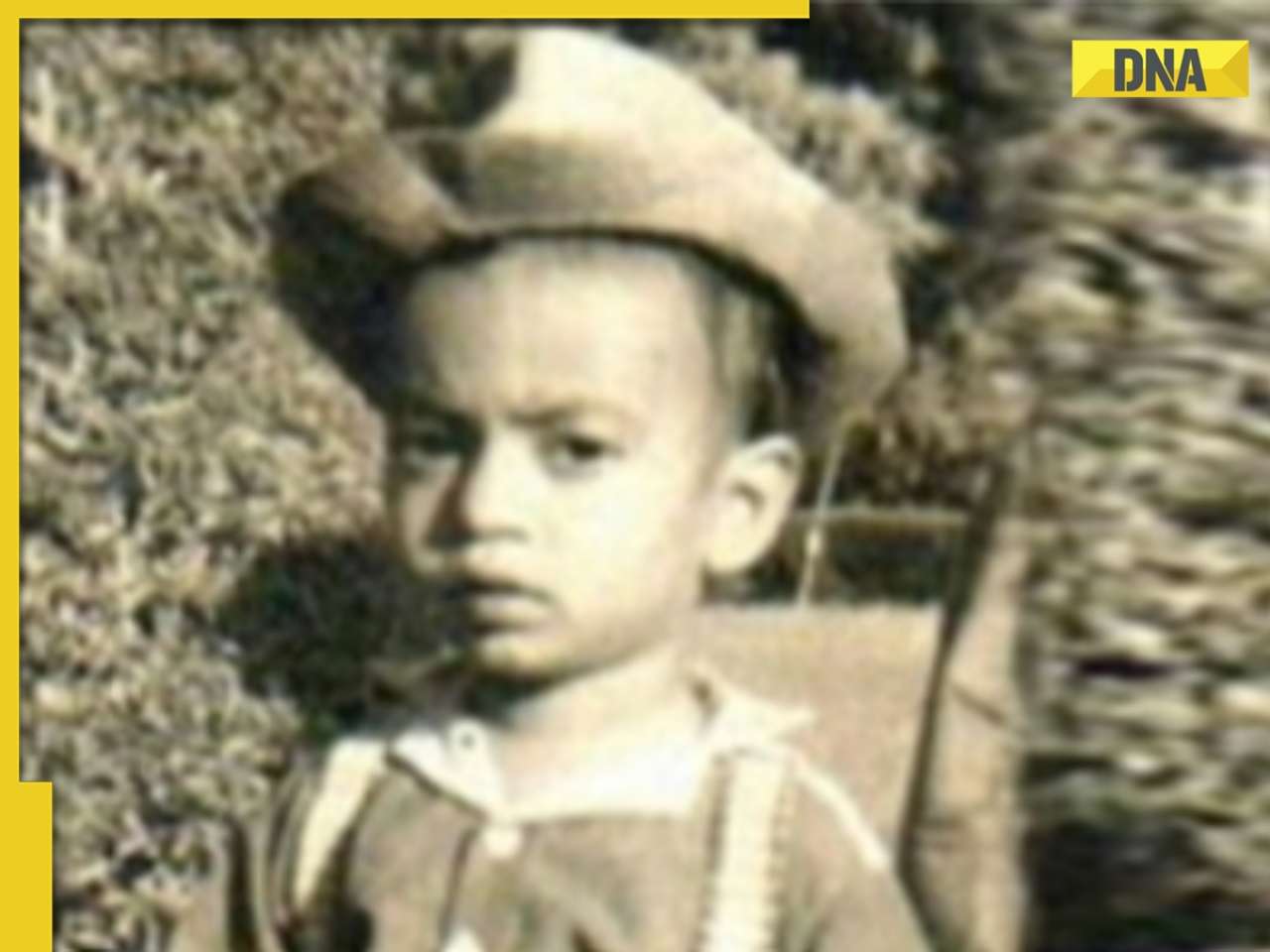


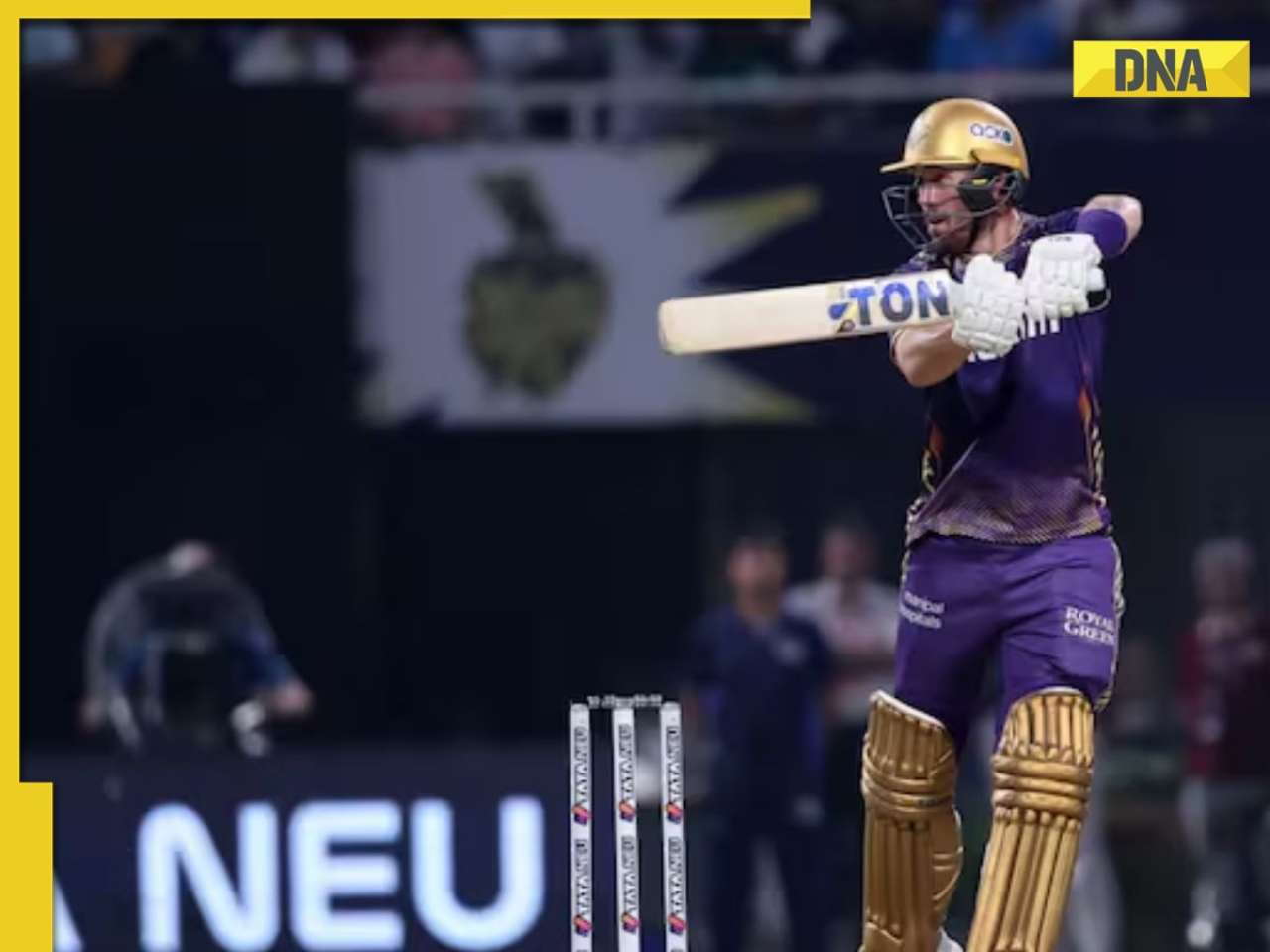








)




)
)
)
)
)
)